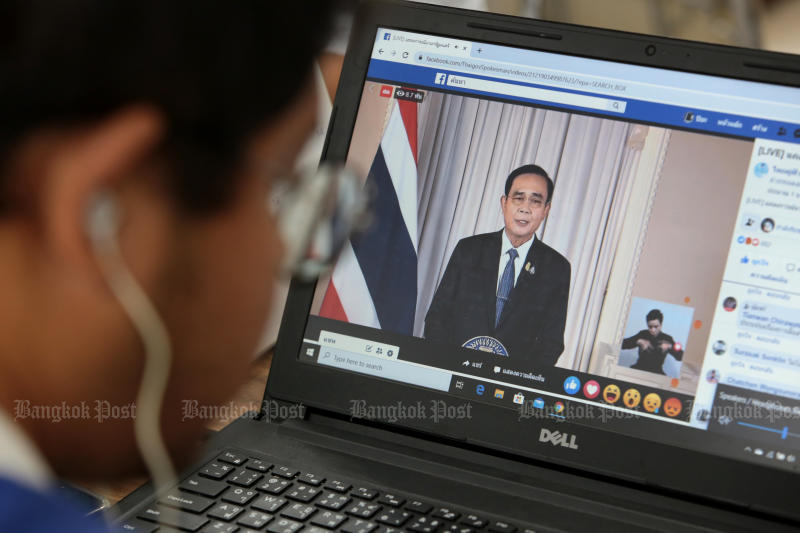
A large majority of people obtain most information about Covid-19 online and from social media, but find television the most reliable source, according to an opinion survey by Suan Dusit Rajabhat University, or Suan Dusit Poll.
The survey was conducted on March 25-28 on 1,033 people throughout the country to compile their opinions on news circulated on various kinds of media, including fake news.
The largest number of respondents, 79.30%, said they obtained information on the coronavirus online -- on social media such as Facebook, Twitter and Instagram, and on websites -- followed by 77.05% from television; 60.69% from hearsay; 45.52% from printed materials including newspapers and official announcements; and 44.73% from short message services (SMS).
Asked which sources they found the most reliable, however, 89.00% chose TV, followed by 63.09% printed materials such as newspapers and official announcements; 56.23% radio news; 53.72% online media such as Facebook, Twitter, Instagram and websites; and 42.98% word-of-mouth.
Asked how they differentiated between real and fake news, 41.08% said they took into consideration the reliability of sources of information; 32.22% said they collated news from various sources; 22.96% said they analysed all news rationally; 20.10% said they usually awaited confirmation from the government or concerned agencies; and 16.95% said they relied more on mainstream media than on social media.
Asked what worried them most about Covid-19, 36.08% pointed to the fact that the virus is highly contagious and the pandemic is serious; 30.59% cited the rising number of infections and deaths in various countries; 26.93% cited the government's handling of the situation and measures being taken; 18.90% cited the instances of infected people refusing to self-isolate and concealing information about themselves; and 14.23% cited rumours and fake news.
Asked how Covid-19 news should be presented, 54.55% wanted to see accurate news bulletins with no information concealed; 34.33% wanted the news on Covid-19 to be reported constructively; 25.33% suggested that the news should be supported by experts and other competent people; 15.52% said all news should be properly reported with clear sources of origin; and 13.31% said Covid-19 news should be reported via a single channel -- the Television Pool of Thailand (PPT).